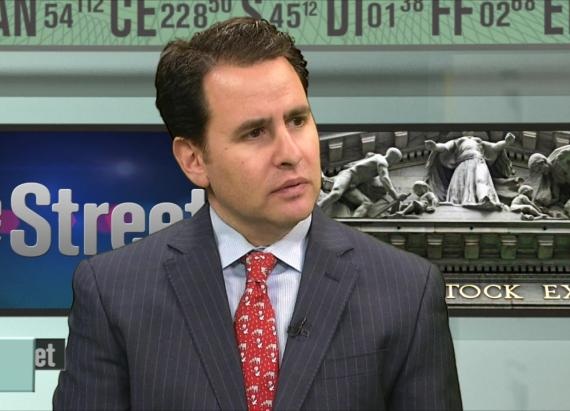
You might not be familiar with the name Whitney Tilson, but you should be, because a spectacularly wrong prediction he made back in 2004 can teach you all you need to know about investing in stocks.
Well-known in financial circles, Tilson graduated magna cum laude from Harvard in 1989 with a Bachelor of Science in government studies and went on to earn his MBA with high honors from Harvard Business School. After that, he founded Kase Capital Management — which runs three value-oriented hedge funds — where today he serves as managing partner.
Tilson has written for Forbes, Kiplinger’s, and the Financial Times, and is also a contributor to CNBC. You’ll also find him regularly on Bloomberg TV and the Fox Business Network.
In 2004, Tilson founded the Value Investing Congress — often called the “Super Bowl of Value Investing” — a semiannual gathering of the best minds in the financial industry, where participants give presentations that are heavily covered by the media and often move individual stocks.
Tilson, by all traditional standards, has all the credentials and real-world experience to make investors stand up and take notice when he talks about the stock market, which is why you might be surprised to read what he wrote about Google’s IPO almost 10 years ago:
For the record, Google (GOOG) went public at $85 and is currently trading near its all-time high of $1,186.54, almost a 1,200 percent return. It’s hard to imagine how Tilson’s call could’ve been any more wrong, and it illustrates some very important lessons for investors, the first of which is that there are no experts in the market.
An expert is defined as someone with comprehensive and authoritative knowledge in a particular field, but the nature of successfully investing in the market involves being wrong more often than not. Great investors aren’t experts; they prosper not by being right on every stock they trade, but by constantly cutting their losers and letting their winners run.
Once you grasp this, it leads to the second lesson: Only price pays. No matter what script you think your investment will follow, there has to be some point at which you’ll allow price movement to prove you wrong and exit the position.
But perhaps the most important lesson from Tilson’s tale is to never rely on anyone else to make your investment decisions, no matter what school he went to, what he does for a living, or which TV shows he appears on.
We’re living in a time now where, thanks to the Internet and social media, a farmer in Nebraska has access to a quality of information and analysis similar to that available to a broker in Manhattan. Take into account the opinions of those you find reliable, but then incorporate your own analysis to come up with an action plan you believe in and take responsibility for.
5 Ways to Save Money on Your Wedding
The Man Who Saves CEOs Billions in Taxes
What Causes a Stock Market Crash?
#fivemin-widget-blogsmith-image-138903{display:none}.cke_show_borders #fivemin-widget-blogsmith-image-138903,#postcontentcontainer #fivemin-widget-blogsmith-image-138903{width:570px;height:411px;display:block}
 try{document.getElementById(“fivemin-widget-blogsmith-image-138903″).style.display=”none”;}catch(e){}
try{document.getElementById(“fivemin-widget-blogsmith-image-138903″).style.display=”none”;}catch(e){}


Leave a Reply